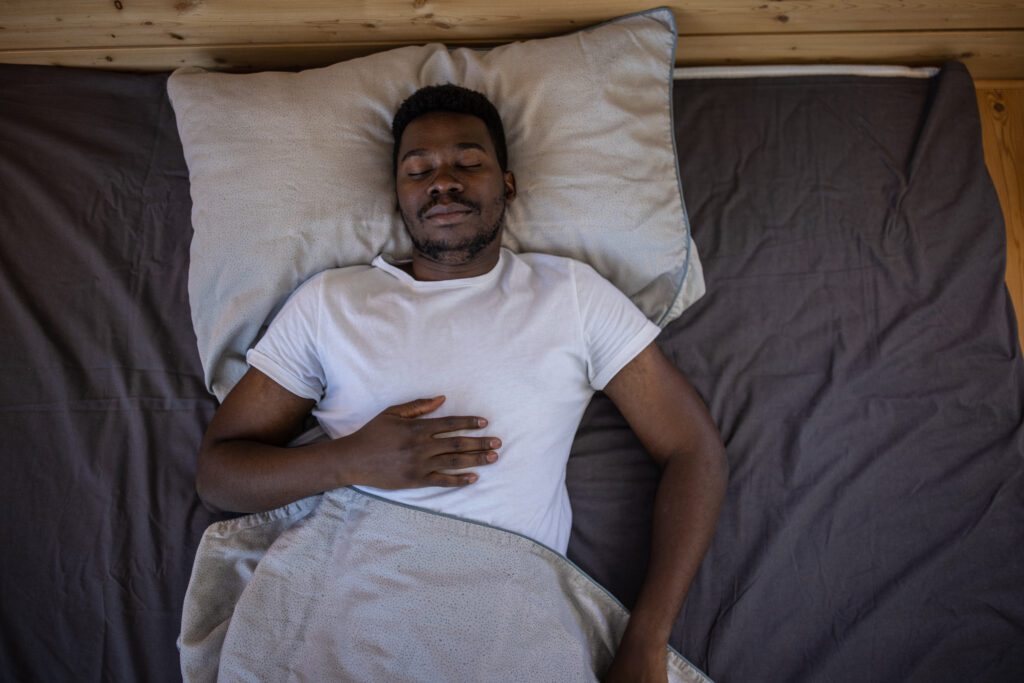by DR. JOY JACKSON
The heart is the powerhouse of the human body and, as such, it is holistically interconnected with the body as a whole. The heart cannot be separated from how the rest of the body is functioning. Poor diet and lack of exercise are often mentioned as factors a person could change in order to improve their heart health. But an everyday function that might seem like it has nothing to do with heart health but is just as important is sleep. Getting a good night’s sleep isn’t just about keeping you awake and functioning optimally the next day—sleep is linked to heart health.
Sleep allows the heart to recover from the stress that is placed on it when a person is awake. During the deep stages of sleep, heart rate slows, and blood pressure drops. When a person gets inadequate sleep or has interrupted sleep, their heart doesn’t get enough time to be rejuvenated.
Health professionals recommend that adults get about seven to eight hours of sleep each night. However, as of 2022, only 62.6% of adults living in Florida got at least seven hours of sleep. This number is comparable to national data as well. In addition, heart disease is the leading cause of death in Florida as well as the United States. People who sleep fewer than six hours every night tend to have a higher likelihood of high blood pressure, diabetes, high cholesterol, more inflammation, and obesity, which are all risk factors for heart disease. Poor sleep can also indirectly affect other risk factors for heart health; people tend to make poor diet and exercise choices when they haven’t gotten enough sleep. Poor sleep negatively affects mental health as well, and mental health issues are elevated risk factors for heart disease.
So, what can you do to improve your sleep habits so that your heart is getting the rest it needs during your sleeping hours? Below are a few tips that might help you sleep better.
- Consistent Sleep Routine
One of the most important changes you can make to improve your sleep is a consistent sleep routine. Go to bed and wake up at the same time every day. Accustom your body to fall asleep at a specific time. Do other activities as a wind-down to your day such as brushing your teeth or taking a warm shower, so that your body gets ready to rest. - Avoid Alcohol and Caffeine Before Bed
Alcohol and caffeine are stimulants that could keep you wired and cause you difficulty sleeping. It’s recommended that you stop drinking caffeine at least eight hours and alcohol at least four hours before your bedtime. However, everyone’s bodies function differently, so figure out when you need to stop drinking alcohol and caffeine so that you can sleep well during the night. - Reduce Eating and Drinking Close to Bedtime
Try to avoid eating a big meal within two to three hours of your bedtime. Just as hunger can keep you awake, so can fullness. - Be Physically Active
Being active throughout the day has various benefits, and one of them is better sleep. Exercise increases the production of melatonin, a natural sleep hormone that tells your brain when to sleep. It’s recommended that you get 150 minutes of exercise per week. Be sure not to exercise too close to your bedtime though – it might have the unintended effect of stimulating you and keeping you too alert to sleep. - Stop Using Electronics at Least an Hour Before Bed
We’re often glued to our screens but the blue light emitting from our televisions, phones, and laptops stimulates our brains and helps keep us awake. It can prevent our bodies from getting the message that we are ready to sleep. Another tip is to install a blue light filter on your electronics to alleviate the stimulating effect that blue light causes.
Try some of these tips and see if they make a difference to your sleep hygiene. If your sleep problems aren’t resolved by changes you make, you might need to address the underlying causes behind your lack of sleep and talk to your medical provider. Don’t just bear poor sleep day after day. Give your body, and your heart, the rest it needs.
